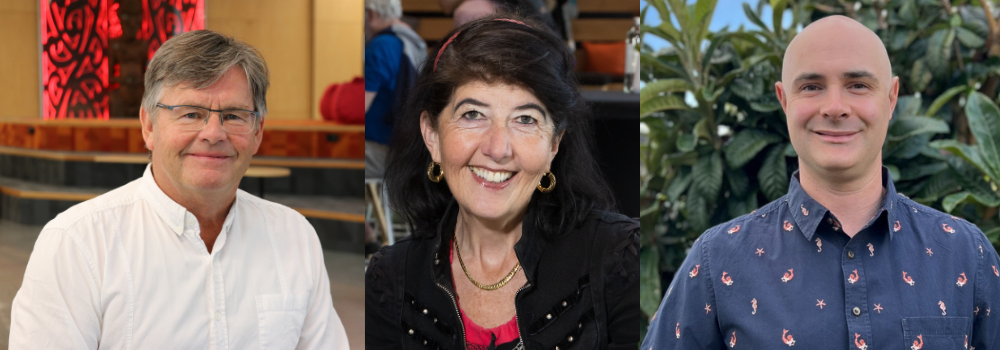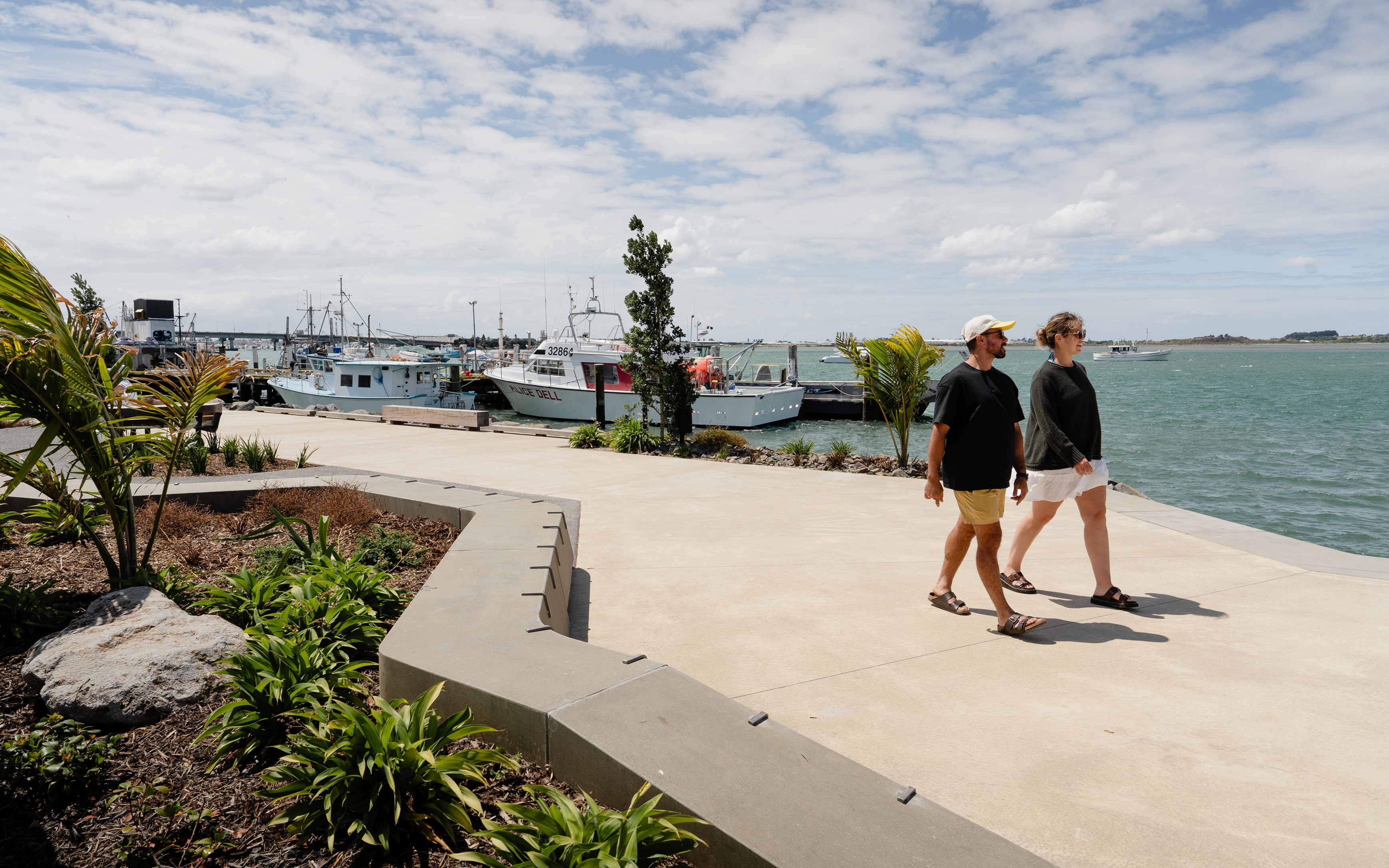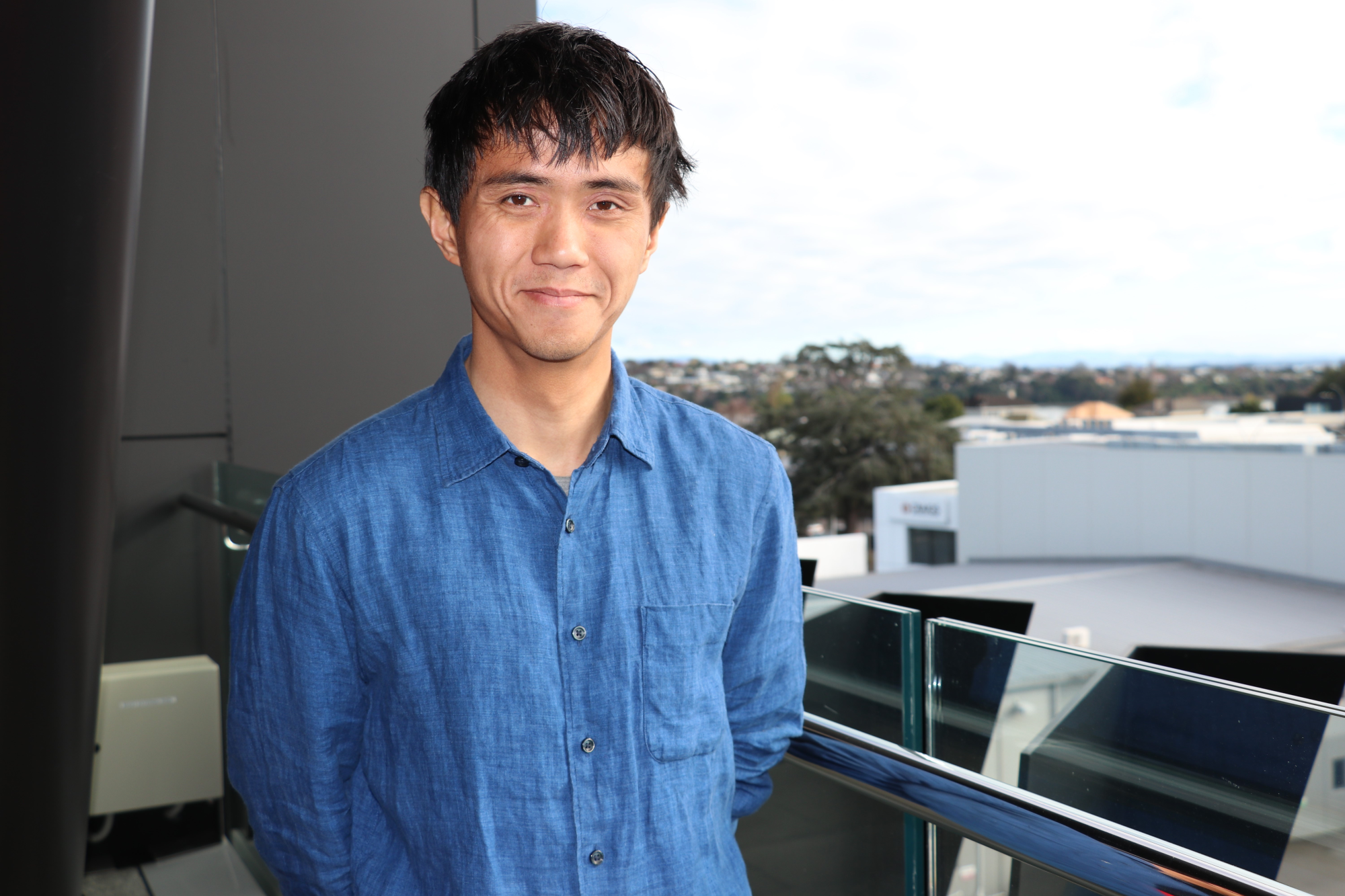Newly funded projects led by University of Waikato researchers have the potential to improve New Zealand’s earthquake preparedness and give food producers an alternative to harmful herbicides.
Funding from the Ministry of Business, Innovation and Employment (MBIE) Endeavour Fund Smart Ideas round announced today sees two projects from the University supported, with each set to receive $1 million over three years.

L-R: Professor Christopher Battershill, Professor Michele Prinsep and Dr Andrew La Croix
Uncovering earthquake hazards in Aotearoa using next-generation geological and ground motion modelling
Senior Lecturer in Te Aka Mātuatua School of Science, Dr Andrew La Croix, will lead a research project aimed at transforming how we predict earthquake shaking.
Earthquakes can create powerful seismic waves that travel through the ground and get amplified by sedimentary basins, or depressions in the Earth’s surface.
Dr La Croix says these basins cover some 55% of the country, but our understanding of their layering and structure is limited. This hinders our ability to make accurate earthquake hazard assessments and prepare for future seismic events.
The project’s multidisciplinary team is made up of people from the University of Waikato, the University of Canterbury, the University of Auckland, Korea’s Changwon National University and Ngāti Wairere, bringing expertise in sedimentary basin analysis, earthquake engineering and mātauranga Māori.
The team will build advanced geological models that take into account the complex nature of sedimentary basins in Canterbury, Hawke’s Bay and Waikato.
Marine allelochemicals as novel, sustainable, environmentally safe and selective herbicides
A project led by Professor and Chair of Coastal Science Christopher Battershill, and Professor of Chemistry and Applied Physics Michele Prinsep, will see a team develop environmentally safe herbicides using substances naturally produced by marine species.
The team aims to advance already identified leads for new agrichemicals, focusing on controlling weed species currently treated with herbicides that are increasingly discouraged throughout the world.
Bioactive extracts from marine life have potential that is yet to be explored to combat pathogens and weeds in the agricultural and horticultural sectors, the team says.
The work expands on a programme led by Ngāti Pūkenga to remediate land while enhancing organic agricultural productivity.
Professor Battershill and Professor Prinsep will work alongside colleagues from the University of Otago, Ngāti Pūkenga and Tāpiri Atu Limited, bringing together expertise in chemical ecology, chemistry, plant physiology and field trials and commercialisation.
Smart Ideas projects are intended to rapidly test innovative research ideas that have high potential to benefit New Zealand and the science sector.
Deputy Vice-Chancellor Research Professor Gary Wilson says he is pleased to see the potential impact of the two projects recognised with funding.
“Both projects, while led by University of Waikato researchers, are collaborative and demonstrate the close connections we have with iwi, industry, and other researchers in New Zealand and overseas,” he says.



